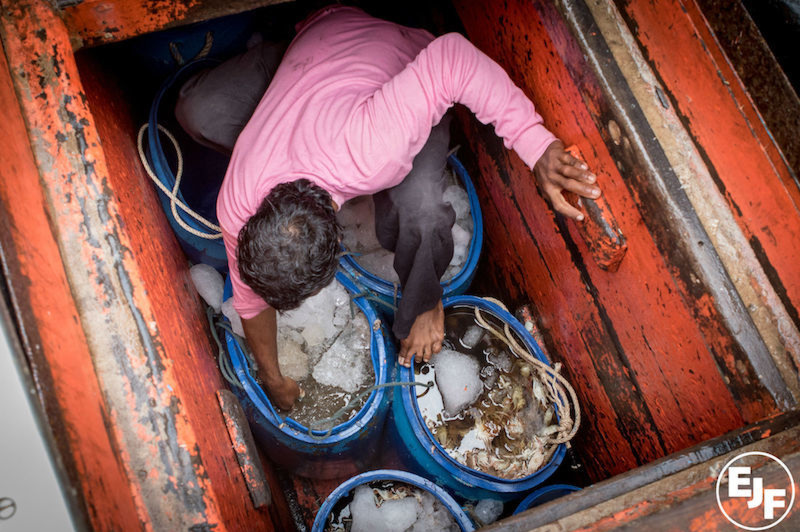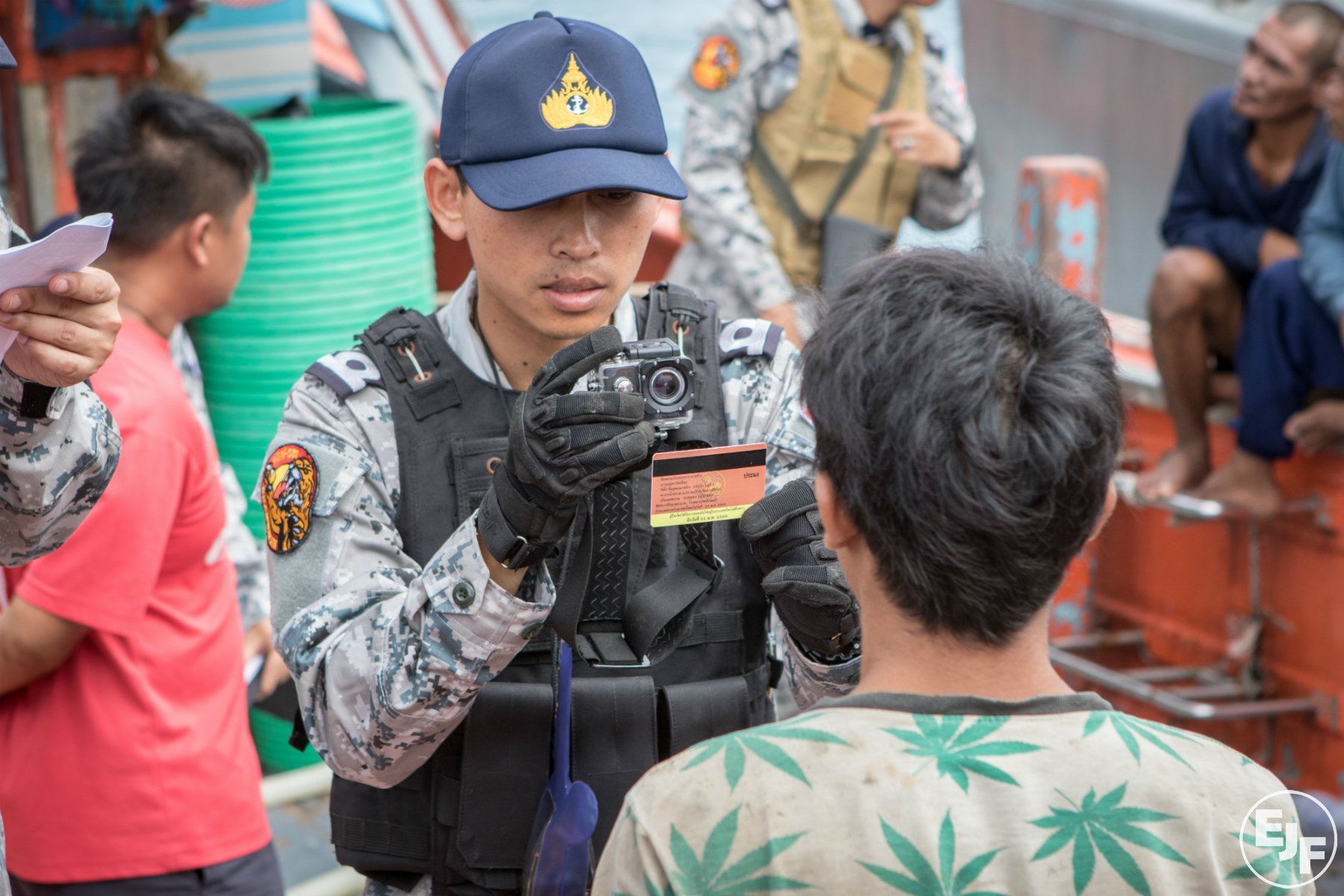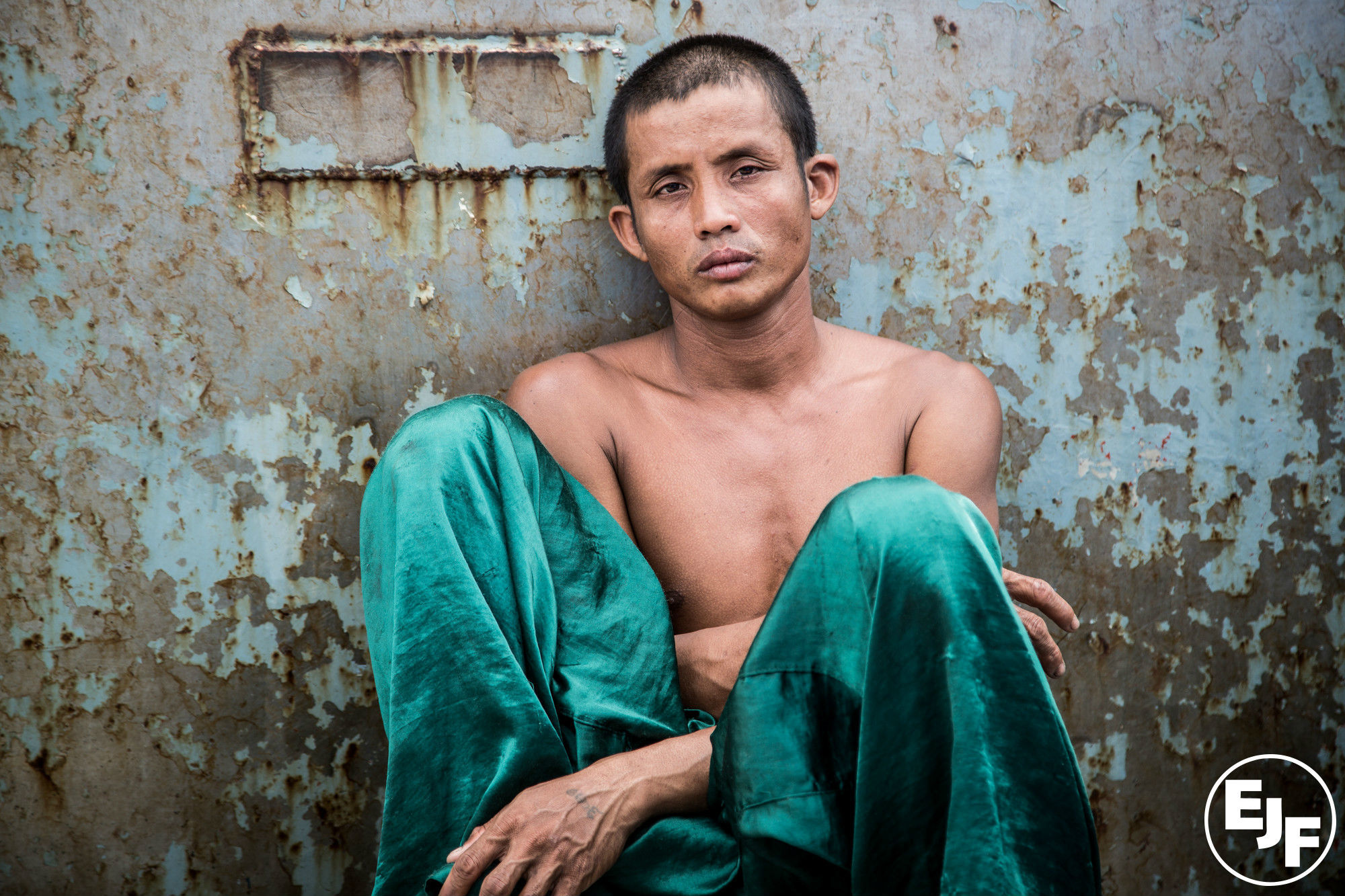
Thailand must stand strong to eliminate human rights abuse from its fishing industry
The Thai government must not yield to attempts by the National Fishing Association of Thailand to derail the ratification of the international Work in Fishing Convention, which protects fishers from human rights abuses, says a statement signed by 30 NGOs today.
Through the very nature of their work, fishers are especially vulnerable to human trafficking as well as forced, bonded and slave labour, operating as they do in isolated and hazardous conditions. To protect this vulnerable group, the International Labour Organization (ILO) has established basic standards of decent work in the fishing industry.
Ratifying the ILO’s Work in Fishing Convention would prevent workers from being exploited by unscrupulous employers who engage in forced labour and debt bondage, pay below minimum wage, and refuse to ensure overtime is voluntary and compensated – all issues which have plagued the Thai fishing industry.
The Thai government has already made strong moves towards ratifying the convention, holding meetings and public hearings on the topic, but has recently come under pressure from the National Fishing Association of Thailand (NFAT) to drop it.
Executive Director of the Environmental Justice Foundation Steve Trent, one of the statement’s signatories, said: “We commend the Royal Thai Government’s (RTG) commitment to this process so far but we strongly urge it to ratify the agreement by the end of 2018. This convention is one of the most tangible measures available toward the reforms that have been identified as necessary and which the RTG has committed to. By adopting C188 the RTG would also be demonstrating Thailand’s leadership in combatting labour abuse and exploitation in its fishing industry on a global scale.”
Phil Robertson, deputy Asia director of Human Rights Watch, said: “Calls to reject the convention by NFAT are sadly unsurprising given it has reneged on previous promises to cooperate with the government to eliminate human and labour rights abuses in the fishing industry. For example, NFAT’s continuing demand for exemptions to the child labour laws preventing under 18 year olds from working in the fishing industry shows an incredibly shocking disregard for human rights and the safety of children.”
As well as providing crucial protection for fishers aboard Thai vessels, ratifying the convention could also solve the labour shortage in the Thai fishing industry, the NGOs say.
Currently, many countries which might provide a source of migrant fishers are reluctant to enter formal agreements with Thailand over the flow of workers because of Thailand’s reputation for serious and pervasive labour rights abuses. Together with the adoption of other key ILO measures such as those guaranteeing freedom of association and collective bargaining, ratifying the Work in Fisheries convention would show that Thailand is committed to treating its workforce well.
These measures would also send a credible and powerful message to the international community, including seafood buyers, that Thailand is firmly committed to eliminating human trafficking, forced labour and other forms of exploitation from its fishing industry.
Notes for editors
Read the joint statement here
- In Thailand, there are an estimated 4.5 million migrant workers with over 222,000 migrant workers in the seafood sector and approximately 71,000 migrant workers on board fishing vessels. Thailand’s seafood exports are valued at over US$5.8 billion annually, making it the third largest seafood exporter in the world. However, the Thai fishing industry has been responsible for systematic illegal, unreported and unregulated fishing practices, and pervasive, horrific human rights abuses.
- Over the last five years, both the US State Department and the European Commission have issued formal warnings to Thailand about its fishing industry. The US sanction came in the form of a downgrade to Tier 3 in the Trafficking in Persons Report, while the European Commission issued a ‘yellow card’ warning to Thailand on combatting IUU fishing that could lead to a ban on importing Thai seafood products into the European Union. Several NGOs and prominent international media outlets (such as the Associated Press, New York Times, Guardian, and others) also published critical reports and articles exposing abuses in the Thai fishing industry.
The Environmental Justice Foundation is an international non-governmental organisation working to protect the environment and defend human rights. EJF is a charity registered in England and Wales (1088128). www.ejfoundation.org
Human Rights Watch is an international non-governmental organization that conducts research and advocacy on human rights. www.hrw.org
The other signatories to the statement include:
Anti-Slavery International
Business and Human Rights Resource Center
CENTRAL
Conservation International
Human Rights and Development Foundation
Humanity United Action
International Labor Rights Forum
FinnWatch
FishWise
Focus on the Global South
Fortify Rights
Foundation for Education and Development
Freedom Fund
Freedom United
Green America
Greenpeace Southeast Asia
Labor Safe
MAP Foundation
Mekong Migration Network
Migrant Working Group
Migrant Workers Rights Network
Raks Thai Foundation
Slave Free Seas
Stella Maris Seafarers' Centre
Stop The Traffik Coalition
Uniting Church in Australia, Synod of Victoria and Tasmania
Contacts:
Daisy Brickhill - EJF Press & Communications Coordinator
daisy.brickhill@ejfoundation.org
Tel: +44 7871 946 911
SIGN UP FOR OUR EMAILS AND STAY UP TO DATE WITH EJF

